Comment: Haiti cannot build peace on an empty stomach
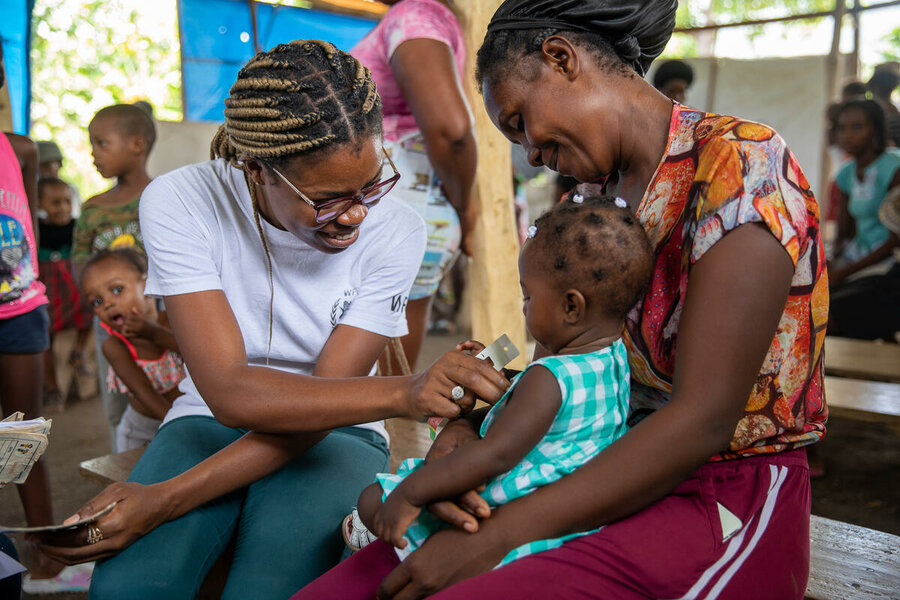
During normal times, Route Nationale 2 would be jammed with brightly painted trucks and buses connecting the major shipping ports of Haiti’s capital to the south of the country. The highway snakes its way from Port-au-Prince Bay along the coast, an essential artery for transporting products such as fuel, cooking oil, plantains, rice and purified bottled water.
But these are far from normal times. For more than three years, armed groups have controlled the southern exit of Port-au-Prince. In January, new roadblocks were set up further out. The flow of trucks has ground to a halt. In the cut-off southern peninsula, fuel is scarce and the cost of a food basket has jumped by nearly a quarter in a month.
I met farmers in Arbonite who were forced to let their crops rot in the field because of criminals blocking trading routes
The blockade in the capital underscores a deeper problem. Each week brings new attacks by armed groups, including murders and sexual assault, sparking fresh waves of displacement. Over 300,000 people have fled their homes, seeking shelter in schools, construction sites and churchyards.
In my work with the World Food Programme (WFP) in Haiti for the past two years, I’ve seen how warring gangs in the impoverished Cité Soleil neighbourhood of Port-au-Prince have built massive concrete walls dividing territory while residents trapped inside go days without food.
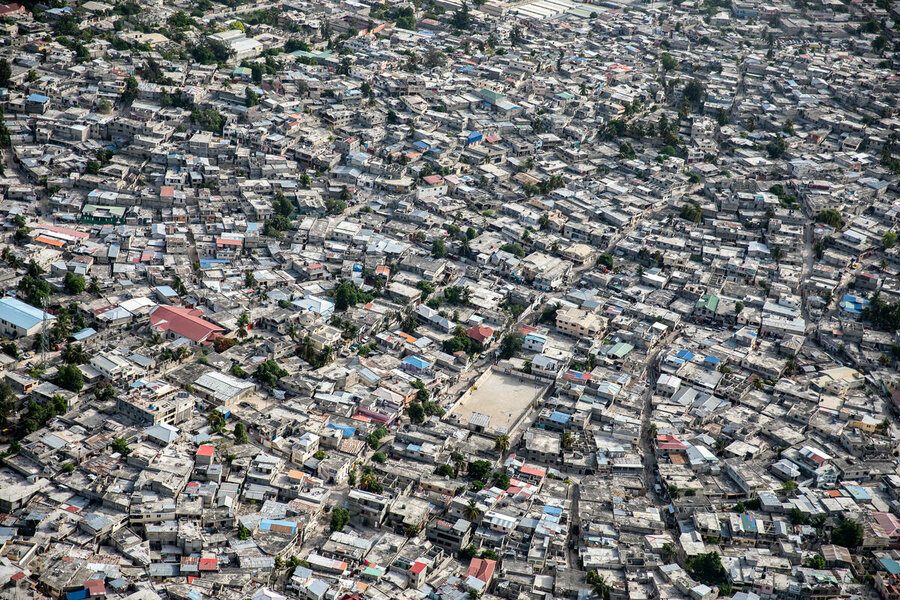
I’ve met farmers in the Artibonite department of central Haiti forced to let their crops rot in the field because of criminals blocking trading routes.
A short drive away, mothers and their starving children are turned away from overcrowded paediatric wards.
The situation is dire. More than 4 million Haitians, nearly half of the population, are suffering acute hunger as the violence gripping the country hampers the ability of humanitarians to reach those in need.
Tackling the security situation is crucial – but it is not enough. In delivering physical nourishment, food also brings hope.
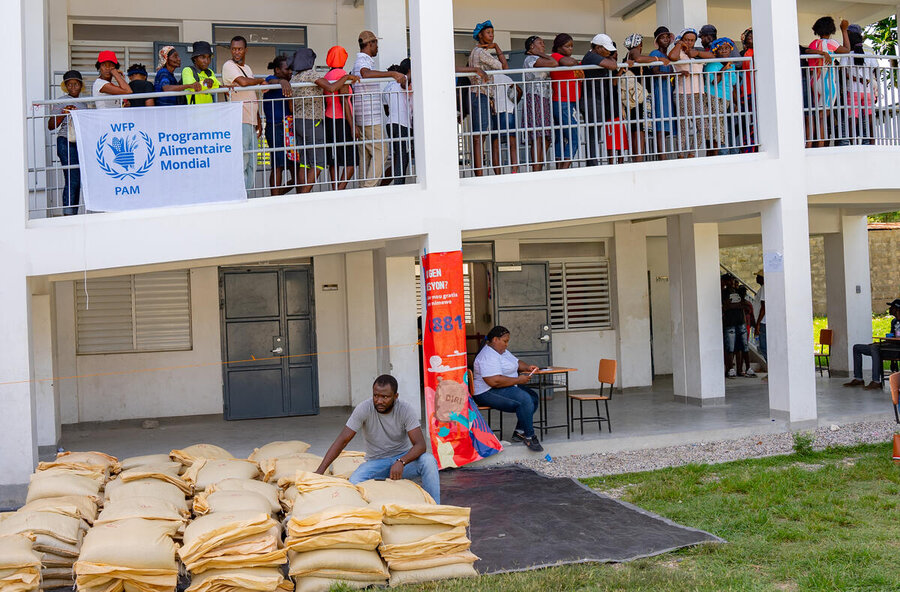
WFP's work in Haiti shows how food has the power to offer a sense of possibility to hard-pressed communities. Last year, for example, after months of negotiations with local authorities to gain access, we provided food rations comprising local rice and beans to more than 15,000 people in central Haiti, which had been cut off for months by gang activity.
Ensuring Haiti’s smallholder farmers can thrive is also key to ensuring food security in the country. Right now, we work with more than 4,000 such growers, whose harvests supply about half the school meals we provide to 420,000 schoolchildren.
We aim to source 100 percent of school meals from local farmers
Thanks to this scheme, farmers have a secure market to sell their produce at a fair price, while contributing to the development of the nation’s human capital.
As one of our participant farmers put it, this is national production at the service of the country. In line with the Government’s school meals policy, we aim to source 100 percent of Haiti’s school meals locally by 2030.
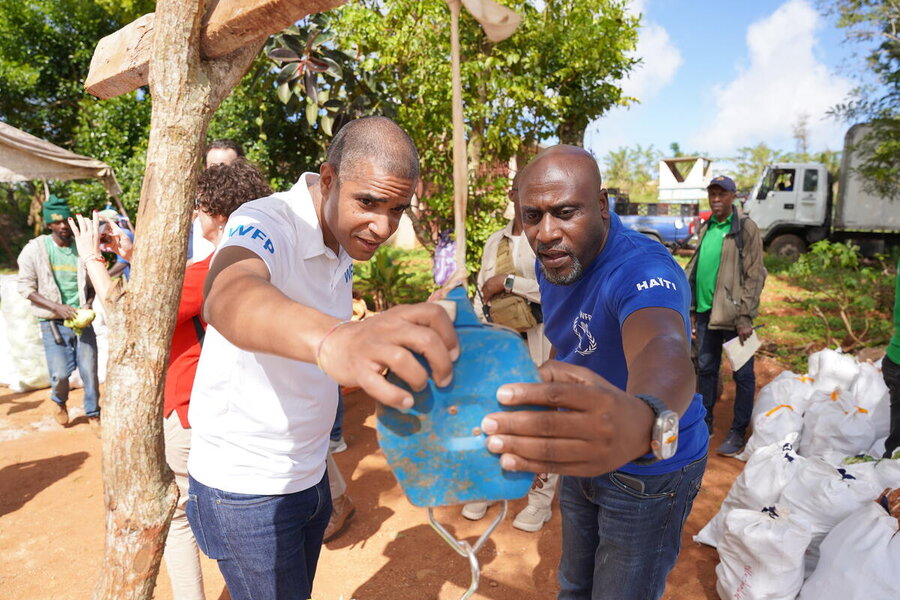
Once conditions stabilize, we aim to transfer the project to the Government.
So while there is hope and promise, far more needs to be done. Funding levels for WFP Haiti are grim. We face a shortfall that exceeds US$104 million for the next six months, as needs escalate.
At a time when international headlines are crowded with multiple crises, we must not allow Haiti to be forgotten. There is an opportunity to address the nation’s hunger crisis not only by providing food to the most vulnerable but also by supporting farmers and building up local food systems.
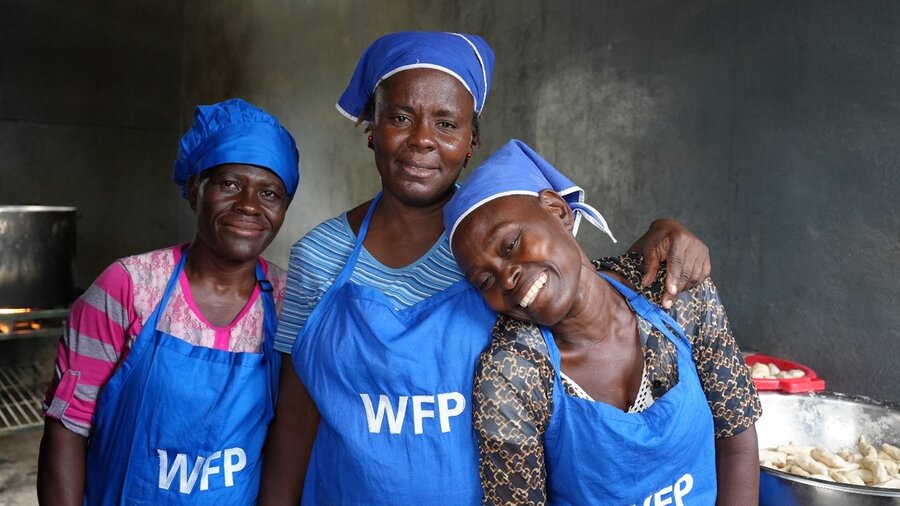
Conflicts are complicated, but the moral imperative to ensure civilians are fed should be quite straightforward. We ignore it at our peril.
Jean-Martin Bauer is Country Director for the World Food Programme in Haiti.
